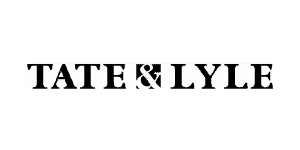Industrial noise comes in all shapes and sizes. Some can be acceptable and are a natural result of the processes taking place or equipment in use. However, others are excessively loud and could harm people and the environment. Plus, there are noises that are an indication that something is wrong or inefficient. If you have concerns, you may want to look at noise control.
The greatest news here is that there are a number of different techniques you can use to reduce noise. Many of them are straightforward and have very wide applications. Plus, most will have little or no impact on performance. We want to look at some of the ones you may want to think about below.
Vibration isolation
There are many situations where the cause of noise is excessive vibration. This can be the case with fans, motors, pumps, and even structural elements like mezzanine floors. Excessive vibration due to incorrect mounting or inefficiency in particular can be very noisy.
The noise control solution here is to reduce the transmission of the vibrations. For example, you may have a piece of plant machinery that is bolted to steel supports. The vibration will transmit through the steel, causing a huge amount of noise. What you can do though is use isolating pads to stop the vibration from radiating into the structure.
Replace nozzles
You may have several different pieces of equipment that require a nozzle. For instance, it could be compressed air systems for blowing or drying. Unfortunately these nozzles may emit a lot of noise when you use them, especially if they are just simple copper ones.
What you can do here is upgrade to entraining units. These are quieter and far more efficient. You will see a reduction in noise instantly. Plus, the designs can help you to save on air, cutting your costs in the process.
Silence pneumatic exhausts
Another thing to look at is exhaust noise from pneumatic systems. Large pneumatics, especially if they use compressed air, can produce noise for three different reasons; back pressure, clogging, and a poor design. However, you can tackle each of these with noise control solutions.
To start with, it is always a good idea to check the exhaust design. If you have several exhausts in one spot the noise may be excessively high. What you could try is to manifold them and create one single large diameter pipe to house them. You can then fit a silencer to reduce the sound.
Back pressure can be a big issue in pneumatic systems. If it is too excessive it can cause extensive damage and lots of noise. Luckily you can choose a silencer to tackle the sound without creating more pressure.
Finally, clogging is a concern with all kinds of exhausts. If there is a clog it can restrict air flow and cause lots of noise. What you can do here is choose a silencer that is resistant to clogging. It will keep things flowing with no disruptive sound.
Ask us to review noise control with you
Ventx is an expert at controlling noise in industrial settings. Our goal is to make facilities safer for people while also protecting delicate equipment and maximising performance. We also keep an eye on what is good for the environment.
So, if you need help with industrial noise control, you can rely on us. In fact, we have happy clients in countless industries that use our silencers.









